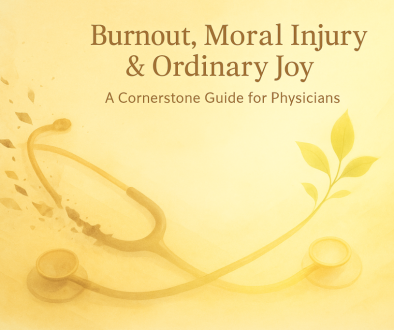Beyond Clinical Excellence: Essential Leadership Skills for the Modern Physician
Understanding the Importance of Physician Leadership Skills
The path to becoming an exceptional physician is longer and more challenging than most people think. In fact, there is no end point. Some times, the path is well maintained and flat. More commonly, it is sheer rock wall that requires tools and skills you did not anticipate. In short, you need more than medical knowledge and clinical expertise. While your years of training have equipped you with crucial medical skills, today’s healthcare system demands a broader skill set. Are you prepared for the challenges ahead? Let’s explore evidence-based strategies that will prepare you for the journey.
1. The EQ Advantage in Medical Practice
Recent studies show that physicians with high emotional intelligence (EQ) achieve better patient outcomes and experience lower burnout rates. According to a 2022 study in the Journal of Medical Education, physicians with high EIQ receive 23% higher patient satisfaction scores and report 35% lower burnout rates. Even more compelling, patients who have physicians with hhg EIQ are 50% more likely to follow treatment plans (JAMA, 2020), and physicians with high EQ experience 33% fewer malpractice claims.
Practical EQ-Building Techniques:
- Practice the “HEAR” method: Hold space, Empathize, Acknowledge, Respond
- Active Listening 2.0: Instead of just repeating a patient’s words, reflect their emotions. Try: “It sounds like this diagnosis has been overwhelming for you. Let’s break this down together.”
- Implement the “teach-back” technique with patients to ensure understanding
- Manage Your Stress: Before entering a tense conversation, practice the “4-7-8” breathing technique (inhale for 4 seconds, hold for 7, exhale for 8)
- Use silence strategically during consultations
- Monitor your own emotional reactions during challenging interactions
2. Leadership Development: From Clinician to Healthcare Leader
Healthcare leadership requires a unique blend of clinical expertise and management skills. A 2023 survey by the American Medical Association revealed that 67% of physicians feel underprepared for leadership roles, despite 82% believing these skills are crucial for career advancement. In short, physician leadership skills are imperative for success in modern medicine.
Essential Leadership Competencies:
- Strategic thinking and decision-making
- Team building and delegation: Use the “Situational Leadership” model to match tasks to team members’ confidence and competence
- Conflict resolution and change management
- Financial literacy and resource allocation
Consider the following common challenge. Your clinic wait times are horrendous and you have been asked to chair a committee to improve them. The team includes nurses, administrators, and front desk staff. What skills and resources will you need to be successful? How will you rally and inspire other physicians and staff to enact your suggested improvement. Leadership isn’t about your rank—it’s about influence.
Leadership Quick Wins:
- Celebrate Wins Publicly: A simple “Sarah spotted a critical lab value that changed our plan—great catch!” boosts morale and models vigilance
- Volunteer to lead a quality improvement project to showcase your ability to drive change
- Pre-Meeting Huddles: Spend 5 minutes aligning your team on daily goals
3. Communication: The Bridge to Better Outcomes
Effective communication isn’t just about conveying information—it’s about creating understanding. Research shows that communication breakdowns contribute to 70% of medical errors. You spent years learning how to speak with patients. How much time did you spend learning how to communicate with colleagues, staff, and students? Here area. Few tips to make those conversations easier.
Master the Art of Difficult Conversations:
- Use the SPIKES protocol for delivering bad news: Setting, Perception, Invitation, Knowledge, Empathy, Strategy/Summary
- Practice scenario-based communication training
- Develop cultural competency skills
Build Team Communication:
- Implement structured handoffs
- Foster psychological safety in your team
- Hold regular feedback sessions
4. Physician Leadership Skills and The Business of Medicine
Most physicians are employees. As a results, they have less control over practice management. Just because you are an employee however, does not mean you can ignore the business aspects of practice. Your income is directly impacted by the decisions healthcare systems make. It is important to understand healthcare economics and business principles. Focus on these key areas:
- Value-based care models
- Quality metrics and reporting
- Resource allocation
- Practice management
- Healthcare policy impact
5. Lifelong Learning: Stay Ahead Without Burning Out
The half-life of medical knowledge is now just 18–24 months (Mayo Clinic Proceedings). But “learning” isn’t about memorizing every new guideline. It’s about strategic growth and adopting adult learning practices.
Strategic Learning Approaches:
- Microlearning: Spend 15 minutes daily on high-impact resources like NEJM Quick Takes or specialty podcasts
- Peer Networks: Join specialty-specific forums to crowdsource insights
- Curated Learning: Focus on high-yield topics relevant to your practice
6. Outcome-Focused Practice: Measure Impact, Not Hours
Value-based care isn’t a buzzword—it’s the future. Physicians who focus on outcomes report 30% lower burnout rates (AMA, 2022). So much of the healthcare system is outside of your control. Choose outcomes and actions that impacted your day to day life and focus on those. Here are a few ideas to help to help you get started:
- Leverage Technology: Use EHR templates to streamline documentation. Try out an AI scribe.
- Ask the question: “Is this a task only I can do? Does it impact patient care?” If not, delegate or delete it
- Monitor quality metrics that matter to your patients and practice
Physician Leadership Skills: Your Prescription for Success
Medical school and residency taught you how to care for patients. To thrive post training, you need more than clinical knowledge and skills. This is especially true if you want to lead a balanced life. Focus on:
- EQ → Build trust, reduce errors
- Leadership Skills → Amplify your influence beyond your title
- Communication Mastery → Bridge gaps between knowledge and understanding.
- Business Acumen → Navigate the changing healthcare landscape
- Strategic Learning → Stay relevant without feeling overwhelmed
- Outcome-Driven Habits → Boost efficiency and professional satisfaction
Ready to develop these essential physician leadership skills? Our comprehensive course, Mastery and Wellness: How to Thrive as a Physician, was designed to bridge the gap between training and the real world. Sign up for the course here or book a free discovery call to learn how I can help.





